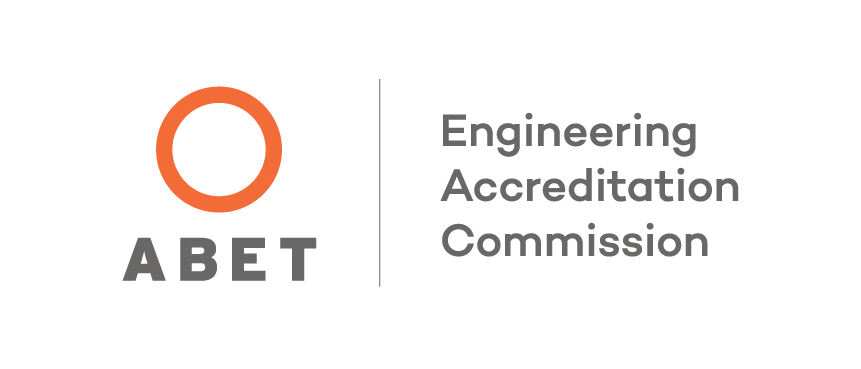
This program is accredited by the Engineering Accreditation Commission of ABET, https://www.abet.org, under the General Criteria and the Industrial Engineering and Similarly Named Engineering Programs Program Criteria.
GU’s Industrial Engineering Program Educational Objectives
The Industrial Engineering program has a clear overall goal and design consistent with the mission of Gannon University, which are reflected in the program’s educational objectives (PEOs).
Graduates from the IE program at Gannon University are expected to:
- Demonstrate leadership abilities through career advancement, as evidenced by promotion and/or acceptance of increasing professional responsibilities.
- Demonstrate interest in continuing advanced professional degrees or graduate studies in industrial engineering, professional training or engineering certification.
- Demonstrate expertise in solving higher level problems relevant to their organization, with main emphasis on safety, quality, productivity, innovation, continuous improvement, and integration into existing or creation of new systems.
- Effectively communicate and participate throughout the organization regarding complex problems and solutions, technological advancements and global innovation to a variety of audiences from all levels of the business.
Industrial Engineers are highly sought after due to the profession’s multidisciplinary relevance the ability of IEs to identify sources of waste relating to time, money, materials, man-hours, machine time, and energy as it applies to complex processes,
systems and organizations, and seek to optimize the same. Hence there is a wide variety of educational experiences that our graduates are exposed to, which prepares them for diverse post-graduation occupations.
Our students’ extensive technical preparation and the design of our curriculum strategically position them for jobs of tomorrow. All of the aforementioned objectives need to be interpreted not as outlooks or attitude but as active contribution of our
students to society.
2023-24 UNDERGRADUATE CATALOG
STUDENT LEARNING OUTCOMES
- An ability to identify, formulate, and solve complex engineering problems by applying principles of engineering, science, and mathematics
- An ability to apply engineering design to produce solutions that meet specified needs with consideration of public health, safety, and welfare, as well as global, cultural, social, environmental, and economic factors
- An ability to communicate effectively with a range of audiences
- An ability to recognize ethical and professional responsibilities in engineering situations and make informed judgments, which must consider the impact of engineering solutions in global, economic, environmental, and societal contexts
- An ability to function effectively on a team whose members together provide leadership, create a collaborative and inclusive environment, establish goals, plan tasks, and meet objectives
- An ability to develop and conduct appropriate experimentation, analyze and interpret data, and use engineering judgment to draw conclusions
- An ability to acquire and apply new knowledge as needed, using appropriate learning strategies
Enrollment and Graduation Data
Fall Enrollment
| |
18-19 |
19-21 |
20-21 |
21-22 |
22-23 |
23-24 |
| Industrial Engineering |
13 |
13 |
14 |
20 |
17 |
18 |
Completions (July 1st to June 30th)
| |
18-19 |
19-21 |
20-21 |
21-22 |
22-23 |
23-24 |
| Industrial Engineering |
4 |
3 |
2 |
3 |
4 |
TBD |